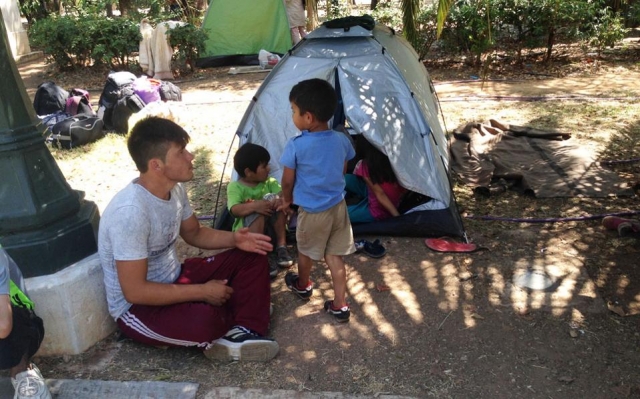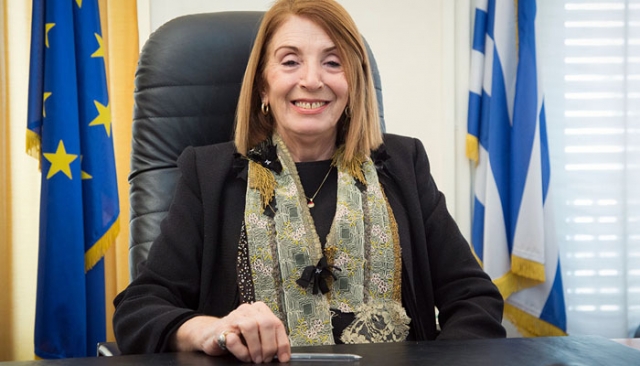Photos: kathimerini.gr
For several days the central Athens Pedio tou Areos Park (Campus Martius) has turned into a camp due to the arrival of dozens of illegal immigrants from Lesbos. Immigrants arrive in the island on a daily basis and having received a document from the Greek authorities they immediately depart for Athens.
The first tents appeared in the park at the end of last week, reports the Greek daily Kathimerini. Their number increases every day and according to the people who are living in them, the only advice they have received is for the number of tents stretched to seem as small as possible.

"We are aware of the situation in Greece. We do not want to stay here, we are just waiting to see when we will be able to leave," they point out, without clarifying how they will leave or where they will go. "The most common route is by train to Thessaloniki, then to Macedonia, Serbia, Hungary and to northern Europe from there. They know about the decision of Hungary to build a fence along the border and are in a hurry," a volunteer from a non-profit organization told Kathimerin. "That is why they do not pay attention to what we advise them. They trust their compatriots who have completed this trip successfully."

Immigrants obtain information by word of mouth. Thus, the majority of those who arrive from Lesbos to the port of Piraeus know they can find temporary "shelter" in Pedio tou Areos Park. Yesterday the "previous settlers" who have been there since last Friday received a new group of immigrants from Afghanistan. At least 200 people, including many children, are living in the trees. The residents of surrounding neighbourhoods are bringing to them sandwiches and watermelons. "Children would better not eat them,'' a man from the group said in broken English.
"They have problems with water and we have transported many children to hospital," said the representative of the non-profit organization.

"A balance has been established but it is a balance of horror. We are doing everything possible to help as a municipality but the number of immigrants is very large. Athens Municipality and the district administration of Attica have undertaken various initiatives because some things are happening in Athens and it is not possible to close our eyes for them. Nevertheless, the problem goes beyond our capabilities and the things we are doing are just "relieving the pain." The government is responsible for the problem and if the Ministry does not provide in due time a concrete and comprehensive plan to set guidelines to address it, the consequences will be very serious," Leftheris Papayiannakis, chairman of the council for the integration of immigrants in the municipality of Athens told Kathimerini.
The local administration has suggested the establishment of a first reception centre to provide newcomers with specific guidance.
At the same time, the reactions on the part of residents of surrounding neighbourhoods are already a fact. The residents of the area around Victoria Square have filed a request in the municipal council to remove the immigrants who are living there. In an open letter to Deputy Minister for Migration Policy Tasia Christodoulopoulou, they describe them as "immigrants who have entered the country illegally, they are occupying the parks and squares with the help of "professional activists" and are against the policy of the government and the municipality."
Meanwhile, in an interview with the Greek newspaper Proto Thema, Tasia Christodoulopoulou has assured that the government intends to organize reception camps for immigrants. According to her, each of them will shelter 2,000 people.

She also noted that the European Union funds to support immigrants would come in August due to which the Greek army would provide them with food until then. As for the fact that the sight of sick and hungry immigrants is damaging to tourism in Greece, Christodoulopoulou commented as follows:
"Tourists know where they arrive. Moreover, tourists visit countries where unusual things are happening. They visit India, where children die in the streets and I have seen no tourist flow interrupted due to this. They visit Egypt where people sleep in cemeteries. What could a Syrian do to someone who wants to go to the beach?"